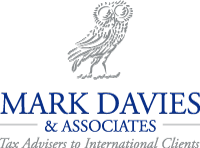Introducing Bjorn
Bjorn is a Swedish national who has been living in the UK for three years. He is a partner at a successful London-based private equity fund.
Having amassed considerable wealth during his forties, he has an investment portfolio with a Swiss private bank, valued at around £5 million. This represents the majority of his personal capital.
His existing portfolio is performing reasonably well but is primarily invested in funds. Bjorn feels that he could benefit from the wealth management expertise on offer in London. He is keen to invest £1 million in individual equities; particularly smaller companies in the UK, which he believes may provide superior growth potential.
Bjorn is a foreign domiciliary (or ‘non-dom’) and pays his UK tax on the ‘Remittance Basis’ and pays the Remittance Basis Charge. This means that he is not liable to UK tax on his foreign income and gains provided he does not bring them to the UK.
Due to his tax status, he is concerned that liquidating a portion of his Swiss portfolio and bringing the proceeds ‘onshore’ could create a UK tax liability. He has also heard that borrowing against the value of an offshore portfolio and remitting the loan proceeds to the UK is no longer advisable from a tax perspective. So, what options are open to him?
This is a common scenario for many international clients. Mark Davies & Associates explains that he can take advantage of a potentially valuable tax exemption available to non-dom Remittance Basis and the Remittance Basis Charge users: Business Investment Relief (BIR).
BIR is designed to encourage inward investment in qualifying UK companies by wealthy non-doms such as Bjorn. Cash remittances to the UK that qualify for BIR are tax-free. Importantly, no tax liability arises even if the money brought to the UK represents foreign income or gains that would, ordinarily, be taxable on remittance.
A number of conditions must be met in order for BIR to apply. Firstly, the companies Bjorn chooses to invest in must not be listed on a recognised stock exchange. At a first glance, this may sound restrictive. However, investments in UK company shares quoted on the UK’s Alternative Investment Market (AIM) are largely allowed.
Alternatively, Bjorn could invest directly in his own trading company, where property development or letting businesses are qualifying trades. If Bjorn owns more than 5% of the trading company and is an officer or employee in the company then Entrepreneurs’ Relief may be available on the gain on the eventual disposal.
Further reliefs may be available if Bjorn makes investments that qualify for the Enterprise Investment Scheme or the Seed Enterprise Investment Scheme.
No minimum investment amount is required in order to secure BIR, nor is there a requirement for Bjorn to have any involvement with any of the companies he invests in. However, once the money has been transferred to the UK he must ensure that it is used to purchase the shares within 45 days.
Similarly, when the UK shares in the qualifying investments are sold, the proceeds must either be taken abroad or reinvested (in another qualifying investment) within 45 days. If these time limits are not observed then a tax charge can arise. A claim for BIR must also be submitted to HM Revenue & Customs within a strict time limit. It is recommended that professional tax advice be obtained.
With expert advice from Mark Davies & Associates, Bjorn arranges a loan of £1 million secured against his Swiss portfolio. Bjorn’s investment manager promptly assists him with investing in a bespoke and fully BIR‑compliant portfolio composed of AIM companies.
The result: Bjorn has achieved his objective of gaining exposure to UK companies with high growth potential without needing to liquidate his existing Swiss portfolio. By taking advantage of BIR and seeking proper advice he is also able to do so without triggering a UK tax liability.

